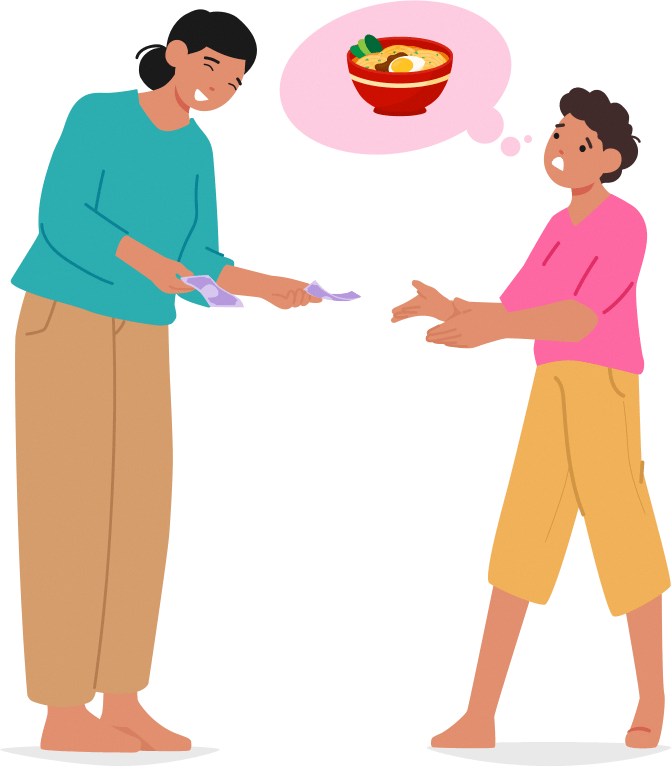How can you use consequences to help your child learn responsibility?
There are two types of consequences:
Natural consequences and Logical consequences.
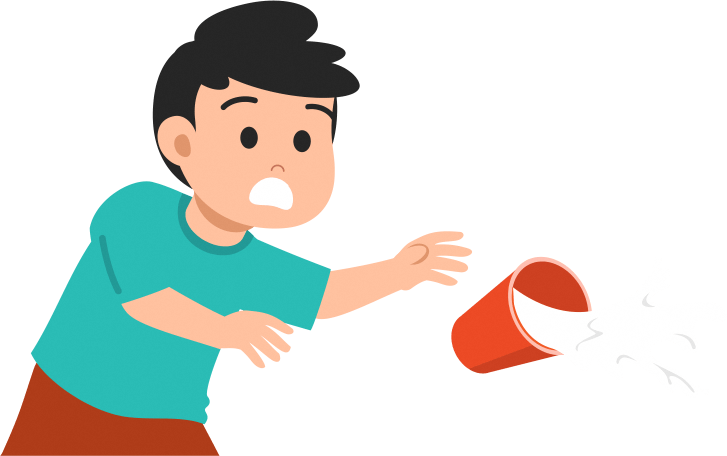
Natural consequences happen without you or other adults intervening (e.g. your child not getting to drink their favourite drink if they spilled it). These consequences help your child to learn from their own experiences.
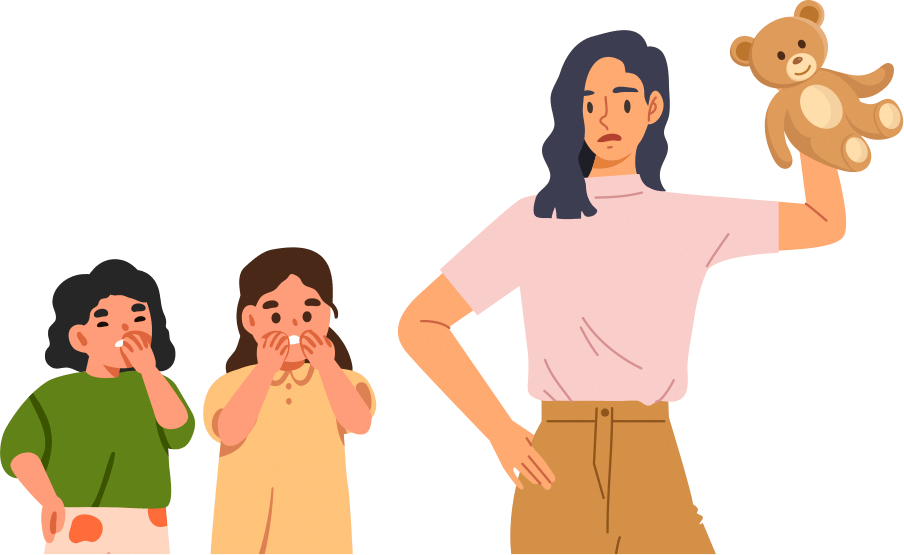
Logical consequences are consistently carried out by you or other adults and are directly related to behaviours you wish to discourage in your child (e.g. removal of a toy your child is fighting over with another child). These consequences help your child to see the connection between their actions and outcomes.
When enforcing consequences,
Allow your child to face the natural consequence of their actions, even if it is unpleasant
-
For example, if they forgot to bring their homework to school, let them face the consequences of that action
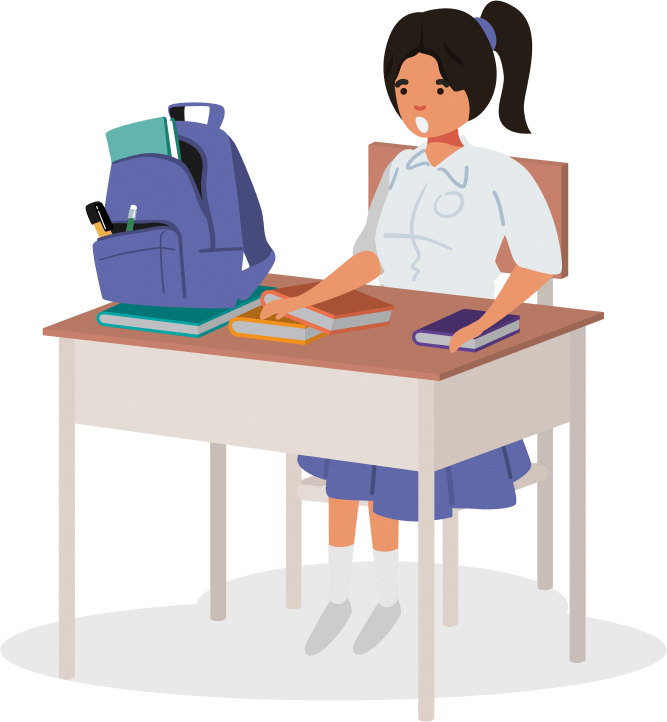
Ensure logical consequences are unpleasant enough to deter your child from breaking the rule again
-
However, also ensure it does not humiliate, harm, or embarrass them
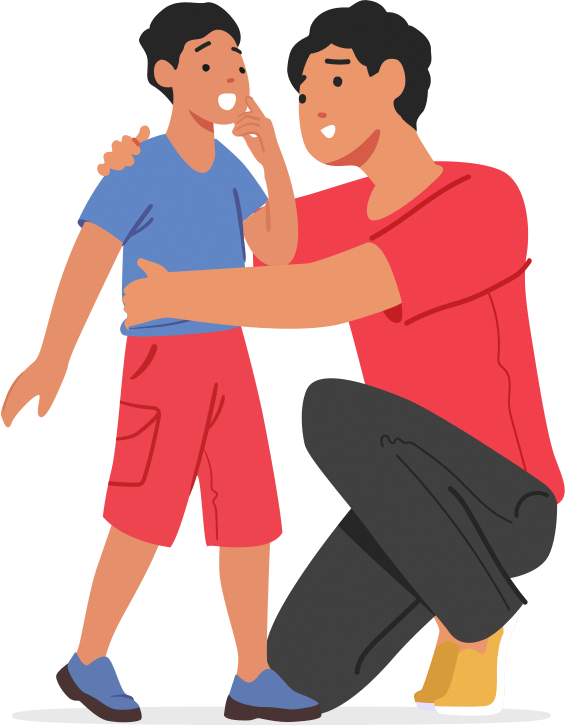
Encourage your child to take responsibility if they have done something they regret
-
Let them know their mistakes do not define them and help them think about how they can learn from their mistakes
-
For example, you can say:
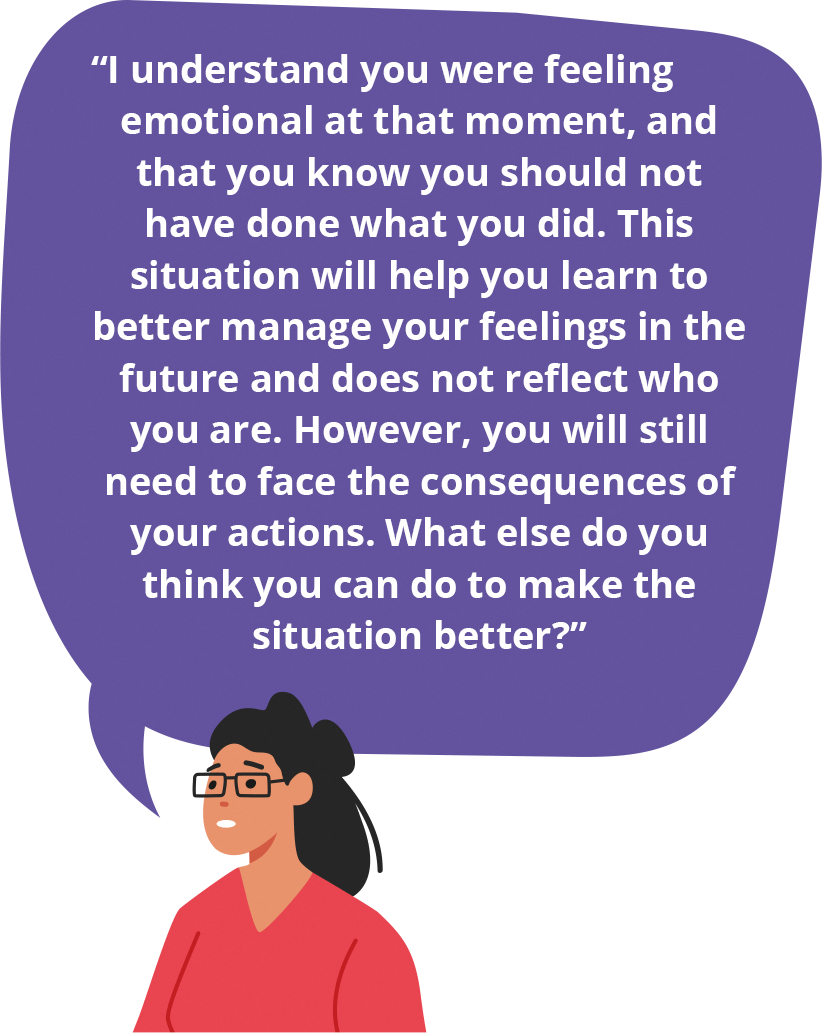
Be united and consistent in adhering to the consequences
-
It is important that you and other caregivers are on the same page in enforcing consequences
-
Inconsistency can cause your child to be confused and make them less likely to follow the family rules
-
For example, if only one parent consistently enforces rules (e.g. losing TV time if your child uses their devices during mealtimes), while the other parent or caregiver is inconsistent in doing so, your child might form the impression that consequences are only enforced when that parent is around, or that the rules can be ignored without repercussions

Help your child understand the impact of their behaviour
-
Encourage them to reflect on how their actions affect others
-
Focus on their behaviour, not their character or personality, by avoiding words like “lazy”, “naughty” and “stupid", as these do not teach your child what acceptable behaviour is and negatively affects their self-esteem
-
For example, if your child snatched a toy away from another child, explain to your child why you had to take the toy away
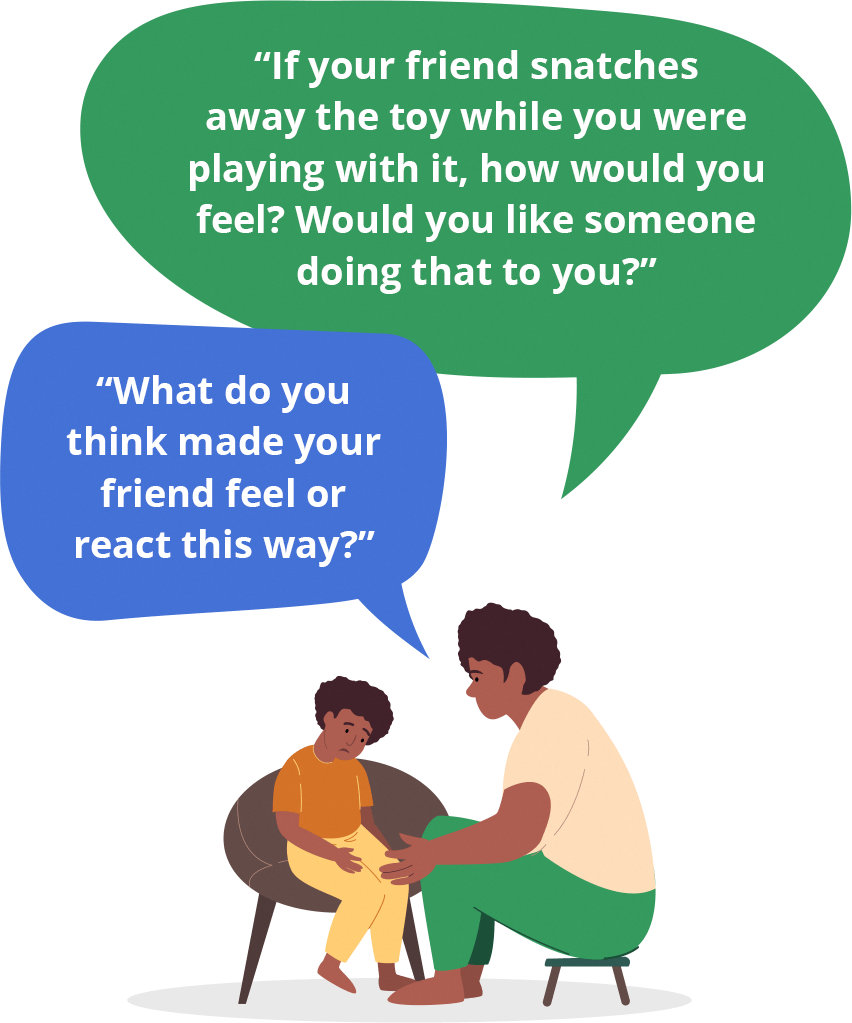
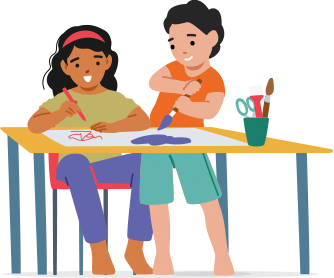
For younger children:
Some suggested consequences for breaking rules include loss of privileges (e.g. taking away time for TV, gaming or device use) and time outs for reflection. This sets time aside for your child to stop, think about their behaviour, and take responsibility for their actions.
Before using the loss of privileges or time outs for the first time,
Explain to your child what to expect
-
It is best to do this on a day when both you and your child are calm
-
For example, you can say:
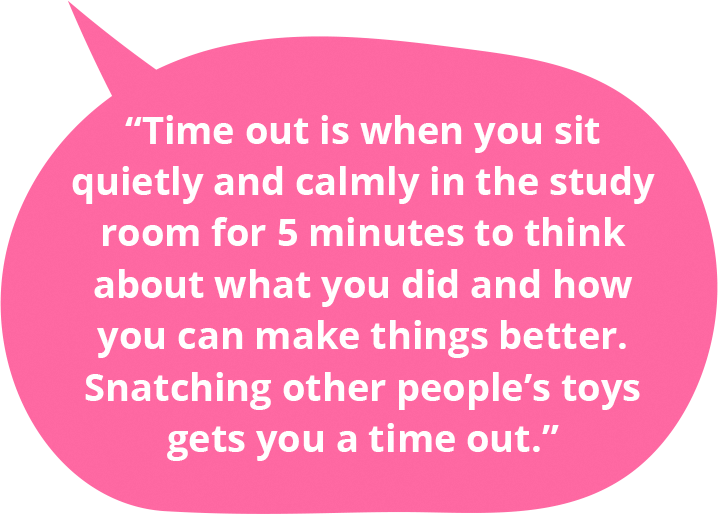
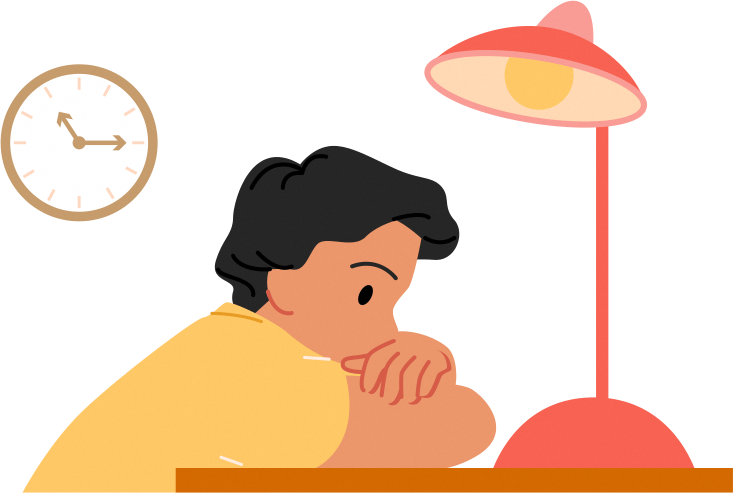
Explain to your child the reason for them losing their privilege or being put on time out before enforcing it
-
For example, you can say:
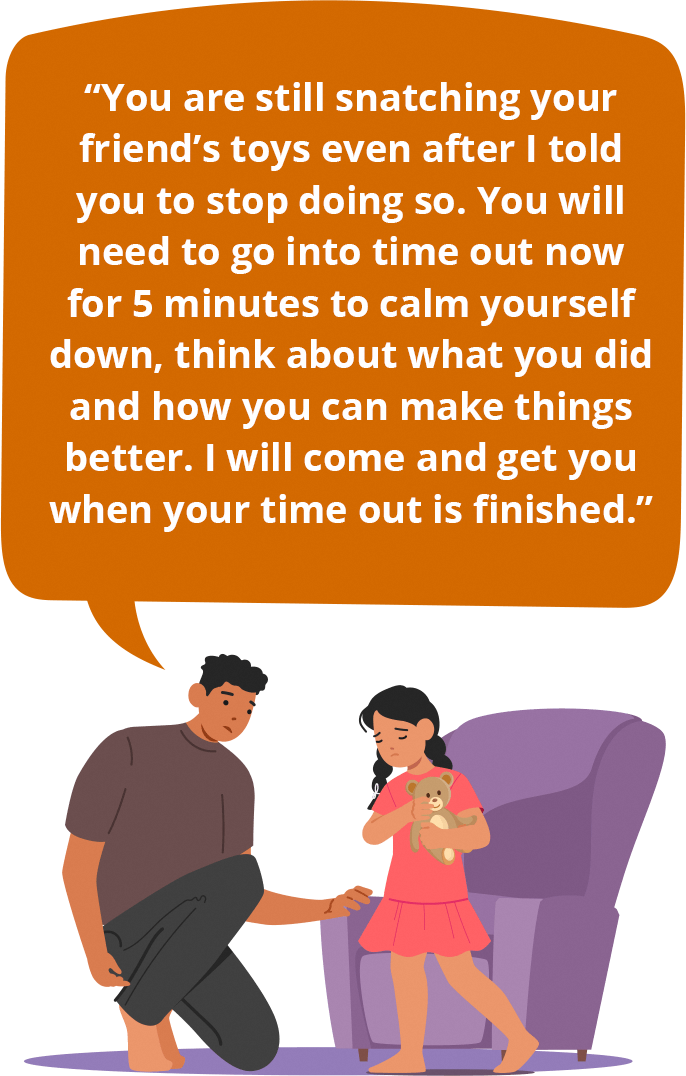

For older children:
Consequences are also useful for older children to learn constructive ways to respond to mistakes and make better decisions in the future.
Involve your child in discussions deciding on consequences for breaking rules
-
When your child feels you listen to them, they are more likely to stick to the agreed rules
-
For example, if your child needs money for food because they spent too much on shopping, you can discuss with them the consequences to be enforced (e.g. offering the money to them first, but as a loan they will need to pay back)
